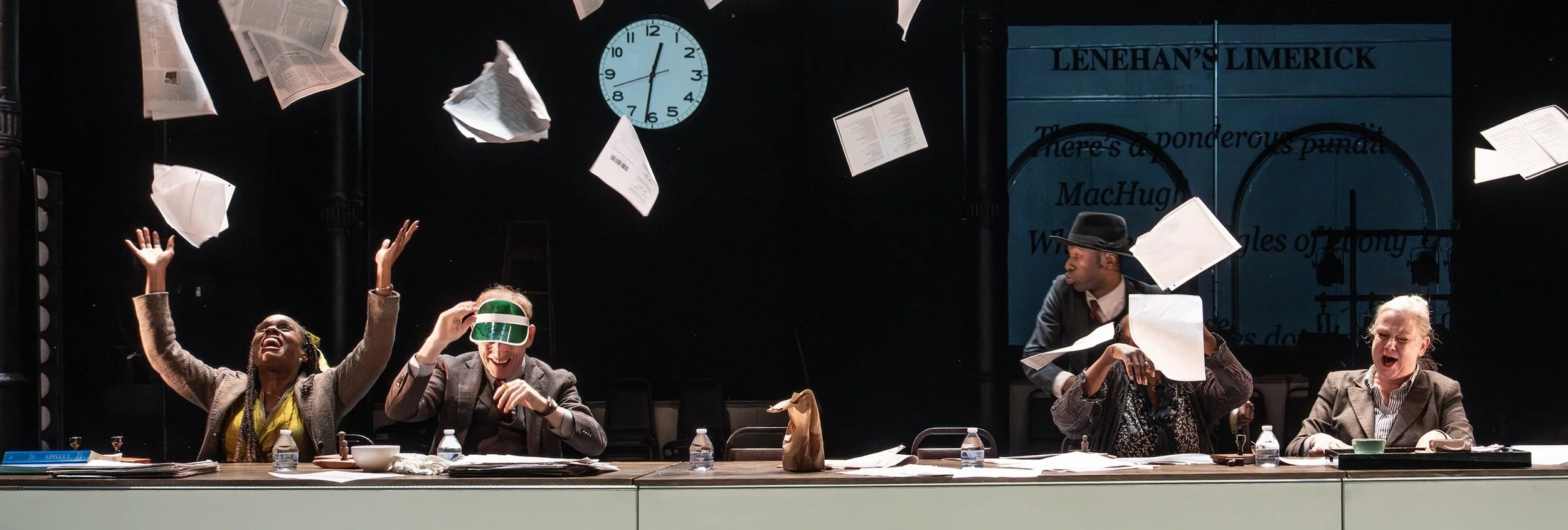Encountering adaptations of the myth of Orpheus and Eurydice seems as inevitable as Orpheus’s fateful turning around to look toward Eurydice on their journey out of Hades. Sarah Ruhl’s Eurydice, from 2003, is receiving a revival to conclude her Signature Theatre residency. The production is directed by Les Waters, who also helmed the play at Yale in 2006 and at Second Stage in 2007. Ruhl’s mournful and whimsical take emphasizes Eurydice’s life and point of view, hence the title excising “Orpheus and,” even bestowing its heroine with some agency, especially during that oh-so-famous moment of Orpheus looking back.
Grief Camp
Eliya Smith has chosen the title of her play Grief Camp cannily. The name nails down the setting and the situation, and it allows her to start the proceedings at a low key, with two of her six young people, Brad and Luna, talking in the dark after lights out. It scarcely matters that the audience can’t yet identify who is who, because the chitchat is innocuous: “Are you awake?” “I’m debating if I want to pee.” “I’m sorry about the stuff at the lake.”
For Peter Pan on her 70th birthday
Poor J.M. Barrie hasn’t had an easy time of it in the 21st century, with the notable exception of revivals of one-acts at the Mint Theater. The 2015 musical Finding Neverland, based on a film, focused on the dramatist’s struggle to find success after failure and the triumphant creation of Peter Pan, his classic 1904 play about the boy who won’t grow up—a play that, by the way, most of Finding Neverland’s audience had probably never seen, since nobody actually stages it. It’s known primarily through the musicalized version from the 1950s that starred Mary Martin, although the Royal National Theatre’s 1997 production, with Peter played by Daniel Evans, now artistic director of the Chichester Festival, and Ian McKellen as Captain Hook, showed the original is still a viable and glorious work.









